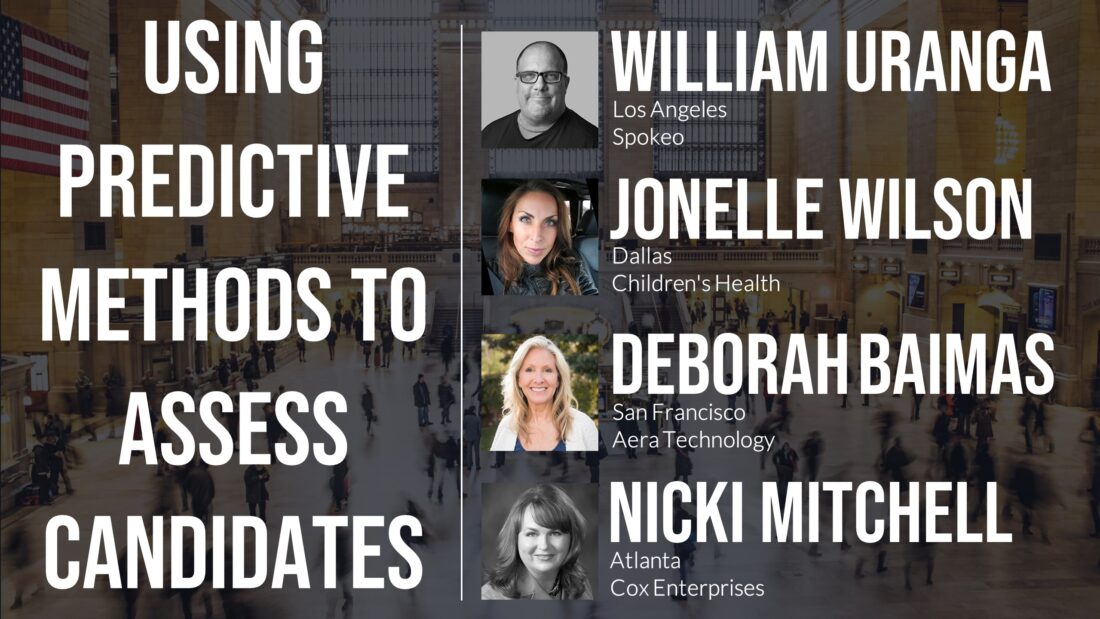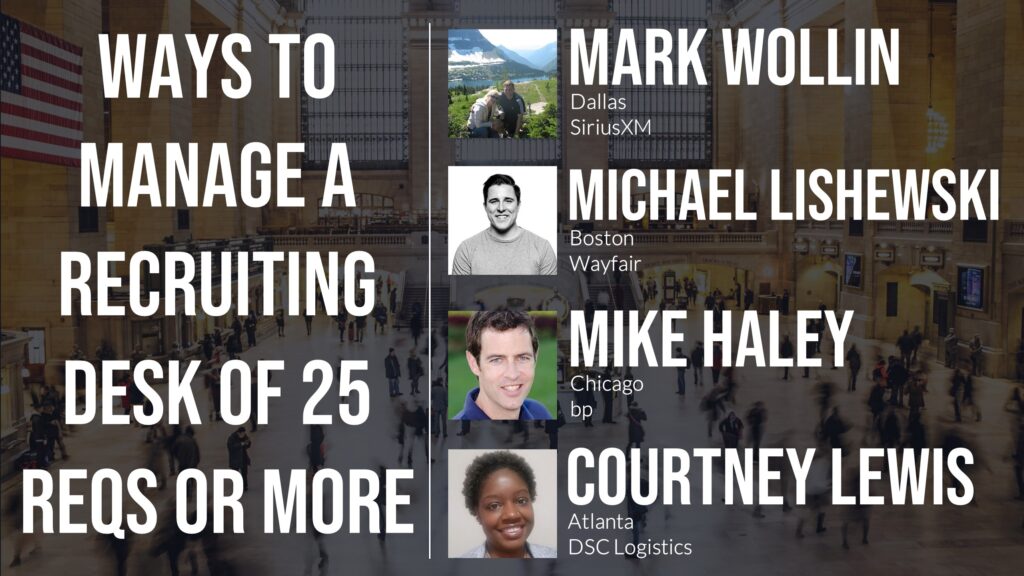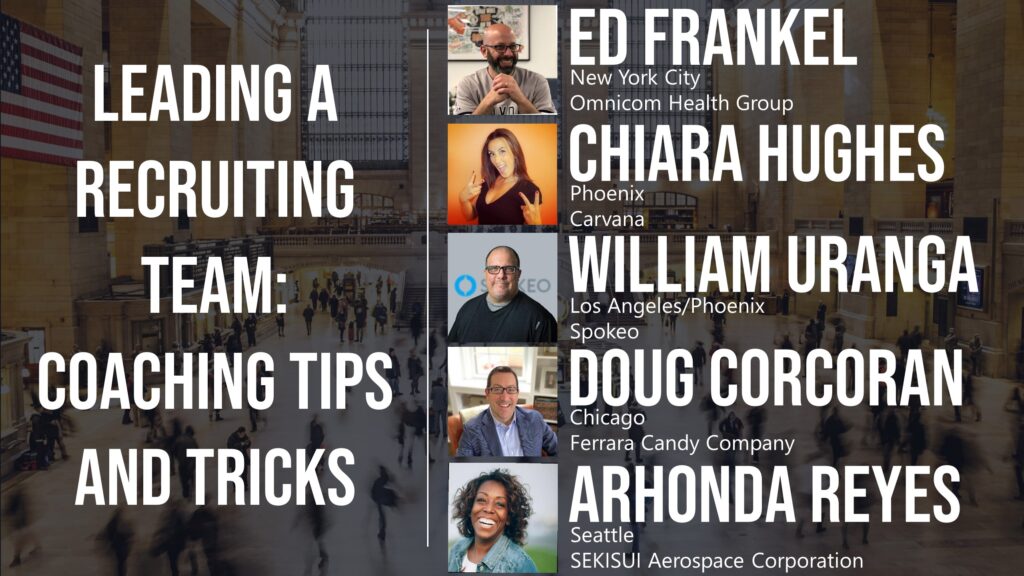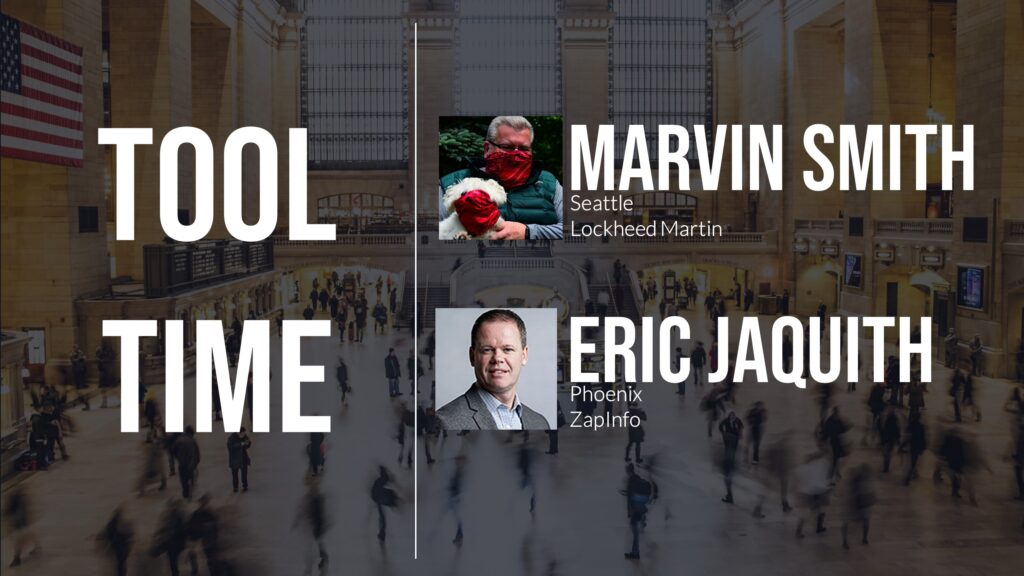Recruiters are screening and interviewing candidates all day, every day, directly with the candidates. And then comes the whole process of assisting and advising the hiring team during the onsite interview process.
In today’s round-table session, we talk about ways interviewing and selection methods that can be done during the interview process to best asses candidates.
Listen in on what our panelists have to say.
This event is part of the “Let’s Talk Recruiting” series where a panel of recruiting practitioners get together online and have a conversation on a variety of topics related to corporate recruiting.
Click to Play the Recording
Our Panelists…
| Name & LinkedIn Profile | Group | Title | Company |
We did a follow-up one-on-one discussion with Yves Lermusi, an industry research expert and CEO of Checkster.
Checkster delivers smarter talent decisions to Fortune 500 companies around the globe — from reference check through onboarding, and timely employee check-ins to exit interviews — they help employees thrive and organizations succeed by building high performing teams that compete to win.
Looking for automated reference checking?
Be sure to check out our group sponsor.

We asked our attendees, “What is one tactic or method that you use when assessing candidates during the interview process?”
Here are their answers:
Chat Messages from the Session…
10:10:06 >> From Sean Rehder : Does anyone use google docs to share information with their interviewing team?
10:10:11 >> From Gary Jackson to All panelists : What ATS do you use?
10:11:40 >> From Deborah Baimas : @Gary – we use Lever
10:11:59 >> From Gary Jackson to All panelists : Also with the questions being prepopulated what happens when someone ask probing questions? Are those added later in the process.
10:12:10 >> From Gary Jackson to All panelists : Thanks
10:13:05 >> From Anne Royse to All panelists : We use Lever for scorecards. We have an interview guide generator. Set up a selection team calibration call at the beginning of the search to ensure everyone knows there part and has the interview guide, and then we’re off to the races.
10:13:22 >> From Anne Royse to All panelists : *their
10:13:44 >> From Anne Royse to All panelists : There, their, they’re. Nails on a chalkboard when I have a typo.
10:14:14 >> From Steven Green to All panelists : Good to hear training provided to both recruiters and hiring managers (new or those needing a refresher). Over time, hiring managers who have participated will learn that this training helps them in other responsibility areas (better 1:1s, coaching sessions, performance discussions, etc.).
10:22:50 >> From Peter Garneau : Has anyone used the Predictive Index and if so, for what roles?
10:23:02 >> From Guiti Nabavi to All panelists : Yes we use Google suite and yes Google doc to share info with interviewing team such as mini training refresher & reminders of what to/not to ask.
10:23:10 >> From Julie Kemp : We have a TA intranet page that houses (among other things) a google doc with our interview question bank.
10:23:26 >> From Nicki Mitchell : Hi Peter, I have used PI extensively – I think we will get into a question about third party vendor options.
10:23:52 >> From Peter Garneau : thanks nicki
10:24:21 >> From Anne Royse to All panelists : We use P.I. all the time for all but a few roles.
10:26:20 >> From Glenn Murani : I am sat in candidate interviews with hiring managers – it is a great help if you can do this in your organization – at least sit in one interview for a new type of position – it will give you a better idea of the skills required, types of questions that are asked and the type of interview it is (one-on-one, panel interview) – and you can give some feedback to the hiring manager. Remember the candidate is interviewing the company too! I would like to see how the hiring manager is “attracting” the candidate to the organization….
10:26:31 >> From William Uranga : Spokeo uses JobScore as it ATS (migrated from Hire with Google)
10:27:44 >> From William Uranga : @Gary If by “probing” you mean follow up questions – yes, we expect those to be cited/documented up front on Confluence.
10:28:01 >> From Nicki Mitchell to Sean Rehder(Direct Message) : are you going to bring it back to predictive assessments?
10:28:57 >> From William Uranga : Shadowing your interview team members and hiring manager is great to support and on-going coaching!
10:29:03 >> From Anne Royse to All panelists : Do you like JobScore? What do you like about it? Conversely, what could be better?
10:30:30 >> From William Uranga : Happy to chat about JobScore offline if folks would like to. There are a lot of great solutions that have different advantages depending on your industry, size, org maturity and price point ([email protected])
10:31:11 >> From Julie Kemp : We use case studies extensively. These are a great way of giving the candidate a sense of the work and a great way of seeing their work product.
10:31:14 >> From Daniella McDonald : I’m working on a case study now for an interview process. I will be presenting to up to 8 people on Zoom. They indicated that there is no specific format to present. It’s the 2nd interview with this company.
10:33:04 >> From Catherine Hansen : Re case studies, candidates have complained to me after the fact (or on Glassdoor) that it seemed that the company was looking for “free work”. I think case studies if they need to be done (we use them for PM & marketing roles) should be a small assignment
10:33:52 >> From Anne Royse to All panelists : Does anyone use preinterview assessments / tests? Gamification? Any of that?
10:34:02 >> From Catherine Hansen : For engineer “case studies” we would use Karat as our technical platform vendor – worked very well
10:36:43 >> From Sean Rehder to Nicki Mitchell(Direct Message) : Ill try here with deborah to bring it back to assessments
10:37:01 >> From Julie Kemp : We use hypothetical case studies unrelated to work we are doing to make sure it is clear we are not asking for free work.
10:37:12 >> From William Uranga : @Anne we do give test/exercises for various roles – Excel for digital marketing, SQL exercises for our data analyst or data scientist roles, etc. No gamifications per se.
10:37:56 >> From William Uranga : @Julie Yes, making sure that it isn’t work that is currently being done in-house is key to/not to compensate…
10:39:03 >> From Peter Garneau : Not familiar with Hackerinks
10:39:31 >> From William Uranga : @Peter Hackerrank, HackerEarth
10:39:50 >> From Anne Royse to All panelists : @William – Did you build them internally, or purchase them from somewhere?
10:40:05 >> From William Uranga : Sorry “hackerank”
10:40:49 >> From Anne Royse to All panelists : Thanks!
10:41:08 >> From JoNelle Sood : as a suggestion, add the 2nd R for STARR which stands for Reflection. It’s a good way to allow the candidate to self reflect and say what they would do differently if given the opportunity. You get another insight to how the candidate would modify/adjust and self awareness.
10:42:47 >> From Deborah Baimas : @JoNelle – I like your suggestion for ‘reflection’!
10:43:17 >> From Catherine Hansen : +1
10:44:18 >> From JoNelle Sood : @Deborah 🙂
10:44:25 >> From Gary Jackson to All panelists : Candidates are interviewing the company also.
10:45:09 >> From Catherine Hansen : @Jonelle, so glad you are bringing up the importance of the candidate experience!
10:45:09 >> From Peter Garneau : Thanks Bill…
10:45:28 >> From Nicki Mitchell : We may not have time to discuss third party assessments – like Predictive Index, DDI, DiSC, Korn Ferry, CSS, etc. Happy to talk to anyone off line if there are questions you have. [email protected]
10:45:49 >> From Deborah Baimas : Great meeting everyone! I have to drop off. Please feel free to connect with me on LinkedIn. https://www.linkedin.com/in/deborahbaimas/
10:46:46 >> From William Uranga : Thanks Deborah!
10:46:56 >> From Steven Green to All panelists : Glad you mentioned candidate experience for reasons given and because of ‘broadcast’ exposure on social media (i.e. list of your interview questions finding its way to Glassdoor, Vault, etc.) and critique on types of questions asked as well as if every different interviewer met asked the same questions – importance of interview game planning up-front, as William mentioned earlier.
10:48:39 >> From Chris Rosenau to All panelists : re: Jonelle – while I was at Amazon we worked on a project with Sales/Marketing to try and quantify the probability that a Candidate was also a Customer, and what the impact of a negative Candidate experience may be in the coming 12 months. We weren’t able to materialize a “formula”, but I still think that approach is critical to recruiting and an enterprise.
10:49:17 >> From Jonelle Wilson to All panelists : @Chrisrosenau Great application!
10:50:08 >> From Anne Royse to All panelists : So important! Thanks Nicki!
10:50:13 >> From Jean Sheehan : We use a validated simulation assessment tool for our call center positions to check if they have the skills available to perform the position for our bulk hiring. I work with [email protected] and the assessment allows the candidate to listen to calls and answer related questions. They offer skills assessment based on the job.
10:54:23 >> From Catherine Hansen : @Nicki, is there a cost associated with the Predictive Index product?
10:57:25 >> From Daniella McDonald : @Catherine – yes, I used it at my last company. I do not know the cost, but there is software, there is training, there are reports and graphs and the assessment write up about a candidate or employee. We also had it integrated with our ATS to send the assessments through that so that the results were attached to the candidate record so there were costs there on both sides.
10:58:45 >> From Steven Green to All panelists : Used a survey from The Forte’ Institute – Communications Profile that was a good development tool. Good for individual and team development due to interaction profile capabilities.
10:59:13 >> From Nicki Mitchell : I have a 2 pm call and will need to drop in a minute. Happy to answer any questions off-line. Thanks!
10:59:27 >> From William Uranga : Thanks Nicki!
11:02:40 >> From Steven Green to All panelists : Thanks to all. Very helpful information, especially on case study development and usage.
Some of the attendees…
| Name & LinkedIn Profile | Group | Title | Company |



